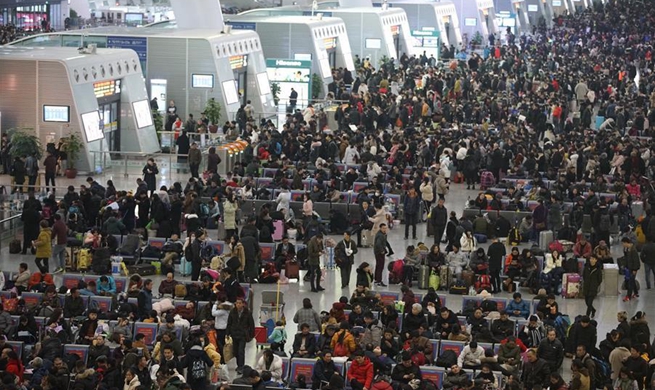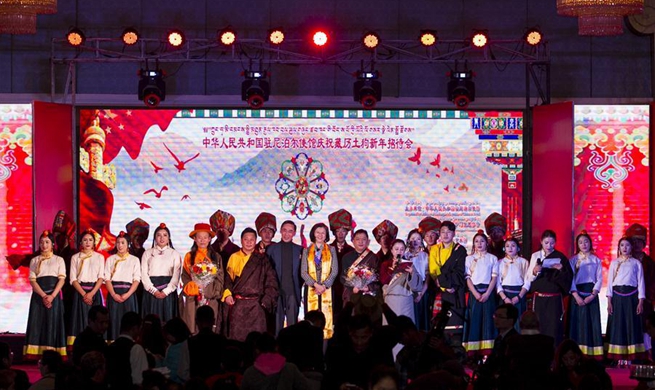KUALA LUMPUR, Jan. 26 (Xinhua) -- With a fleet of 1,025 trucks and vans, Malaysian logistics service provider GD Express (GDEX) can now handle up to 120,000 parcels per day, taking the second largest market share nationwide, only after the government-related Pos Malaysia.
But the company still could not feel relieved.
Thanks to a boom in e-commerce, which has caused a huge demand for couriers and delivery units, GDEX) plans to earmark at least 30 million ringgit (7.71 million U.S. dollars) per annum in the next couple of years to hire talent, expand warehouses, adopt new technologies and add another 300 delivery units in 2018, said the company's chief financial officer Lim Chee Seong in a recent interview with Xinhua.
In its financial year ending June 30, GDEX registered a net profit of 36.8 million ringgit, a 6.9 percent increase compared with the previous year. Its revenue grew 14 percent to 250.5 million ringgit. Its share price also rose from 0.4 ringgit at the start of the year to around 0.7 ringgit in May.
Lim said the company's major shift to e-commerce began several years ago with the collaboration with Xiaomi, a Chinese tech giant, but it was only the arrival of Alibaba that ushered in high growth.
Lim estimated that now 40 percent of the GDEX's business is e-commerce related, among which 30 percent is from cross-border trade, mainly through Taobao and Tmall, two major online shopping platforms operated by Alibaba.
A month-by-month breakdown chart provided by GDEX shows that in December, 32.42 percent of the delivery volume was from China while another 36.37 percent was generated via Lazada, a Southeast Asian e-commerce platform, also controlled by Alibaba.
In a sign underlining the potential of e-commerce in Malaysia, Lazada reported earlier that its 12.12 shopping festival generated a total sales volume of more than 250 million U.S. dollars, more than double that of the previous year.
Lim acknowledged Alibaba's role in reshaping the landscape of e-commerce in Malaysia, saying though the effect of Digital Free Trade Zone, which has Alibaba and the Malaysian government as the main backers, is yet to be materialized, people are more and more getting used to buying things online.
During a trip to Malaysia in November, Alibaba founder and Executive Chairman Jack Ma reemphasized his 72-hour-global buy vision, in which customers all around the world can get their parcels bought online within 72 hours.
Cainiao, the logistics affiliate of Alibaba, is currently pushing for the vision. Lim said Cainiao can help improve the efficiency of customs clearance, the major delay part on the logistics chain.
It is not only GDEX that is expanding to embrace the next wave of e-commerce boom. Century Logistics Holdings, backed by CJ Korea Express Corp, is reported to be ready to enter the e-commerce market.
Going forward, Lim expected more competition but said the business still has a lot of potential before major consolidation.
"Their strengths lie in technology and branding, but we know the market better and can better customize our services," he said.

















